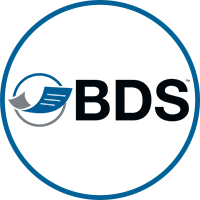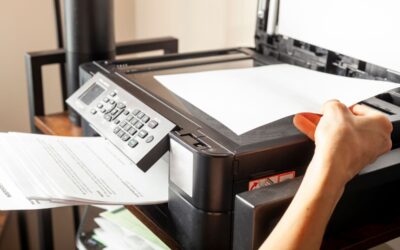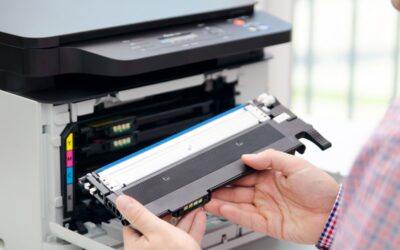A high-quality copier can boost productivity, streamline workflows, and reduce operational costs. However, navigating the purchase process can feel overwhelming with so many copier models, features, and brands available.
This comprehensive guide will explain key factors to consider when buying a copier machine for your business, helping you make an informed decision.
Assess Your Business Needs
Before exploring copier models, you must evaluate your business’s unique requirements. Consider the following factors:
Volume
How many pages does your business print, copy, or scan on a daily or monthly basis? Copier machines come with a monthly duty cycle, which is the maximum number of pages they can handle per month.
- Small Businesses/Low Volume: Up to 5,000 pages per month.
- Medium-Sized Businesses/Moderate Volume: 5,000 to 20,000 pages per month.
- Large Enterprises/High Volume: Over 20,000 pages per month.
Functionality
Modern copiers offer multifunction capabilities (MFPs) such as printing, scanning, copying, and faxing. Assess whether your business needs these additional functions or if a basic copier will suffice.

Print Speed
Print speed, measured in pages per minute (PPM), is essential for businesses with time-sensitive tasks.
- Small offices: 20-30 PPM
- Medium offices: 30-50 PPM
- Large offices or production printing: 50+ PPM
Color or Monochrome
If your business primarily handles text documents, a monochrome copier (black and white) may suffice. However, if you regularly produce marketing materials, presentations, or graphics, investing in a color copier will provide professional results.
Paper Size and Capacity
Consider the types of documents your business uses. If you need to print on various paper sizes (e.g., letter, legal, tabloid), choose a copier with multiple paper trays. For businesses with high output, a copier with a large paper capacity will reduce downtime for refills.
Understand Key Copier Features
The copier industry has evolved significantly, and many machines now include advanced features designed to enhance efficiency and security.
Duplex Printing and Scanning
Duplex printing allows the copier to print on both sides of the paper automatically. This feature saves paper and reduces costs. Duplex scanning speeds up workflows by scanning both sides of a document simultaneously.
Finishing Options
If your business frequently produces booklets, brochures, or reports, finishing options such as stapling, hole-punching, folding, and binding can be invaluable.
Wireless and Cloud Integration
Modern copiers often support wireless connectivity and integration with cloud storage platforms like Google Drive, Dropbox, or Microsoft OneDrive. This feature enables remote printing and seamless document sharing for hybrid or mobile workforces.
Security Features
Data security is a top priority for businesses handling sensitive information. Look for copiers with features such as:
- User Authentication: Restrict access to authorized users.
- Secure Print: Hold print jobs until the user verifies their identity at the machine.
- Data Encryption: Protect data stored on the copier’s hard drive.
- Automatic Deletion: Wipe data after print jobs are completed.
Energy Efficiency
Eco-friendly copiers can help businesses reduce energy consumption and lower utility bills. Look for copiers with Energy Star certifications and power-saving features like automatic sleep mode.
Choose Between Buying, Leasing, or Renting
Businesses have three options for acquiring a copier machine: buying, leasing, or renting. Each approach has pros and cons depending on your budget and needs.
Buying
- Pros: Full ownership, no ongoing payments, long-term cost savings.
- Cons: High upfront cost, responsibility for maintenance, potential for outdated equipment.
- Best for: Businesses with the capital to invest and a long-term need for a copier.
Leasing
- Pros: Lower upfront costs, predictable monthly payments, access to newer models.
- Cons: Long-term contracts, total cost may exceed purchase price over time.
- Best for: Businesses looking to conserve cash flow and upgrade equipment regularly.
Renting
- Pros: Short-term flexibility, no long-term commitment, maintenance often included.
- Cons: Higher monthly cost, not ideal for long-term use.
- Best for: Businesses with temporary needs, such as events or projects.
Compare Copier Brands and Models
Choosing a reputable brand ensures quality, reliability, and access to support. Leading copier manufacturers include:
- Canon: Known for high-quality imaging, robust security, and user-friendly interfaces. Kyocera: Excellent for long-lasting performance and cost-efficient printing.
- Xerox: Popular for large businesses and advanced workflow automation features.
- Ricoh: Offers versatile copiers with strong cloud integration capabilities.
- HP: A top choice for smaller offices with reliable multifunction machines.
Partnering with authorized dealers like BDS provides access to expert guidance and support for leading brands.
Plan for Service and Maintenance
A copier machine is a significant investment, so it’s critical to plan for service and maintenance. Regular upkeep ensures your copier performs efficiently and prevents costly downtime.
Maintenance Agreements
When buying or leasing a copier, consider a service agreement that covers maintenance, repairs, and supplies (like toner). These contracts often include preventive maintenance and priority support.
Support from Authorized Dealers
Partnering with an authorized dealer ensures access to trained technicians, genuine parts, and timely support. As an Authorized dealers we can provide tailored service plans, minimizing disruptions to your workflow.
Calculate Total Cost of Ownership (TCO)
Beyond the purchase price, it’s essential to evaluate the total cost of ownership. Key cost factors include:
- Supplies: Toner, ink, and paper.
- Maintenance: Repairs and replacement parts.
- Energy Costs: Power consumption of the copier.
- Downtime Costs: Lost productivity during equipment failures.
Comparing costs across multiple models helps you identify the most cost-effective solution for your business.
Evaluate Your ROI
Before finalizing your purchase, consider the copier’s return on investment (ROI). Ask yourself:
- Will the copier increase productivity or streamline workflows?
- Will it help reduce printing costs and waste?
- Does it meet current needs while allowing room for business growth?
A high-quality copier can have a significant impact on efficiency, making it a valuable investment for most businesses.
Final Thoughts
Buying the right copier machine for your business requires a clear understanding of your printing needs, budget, and long-term goals. By evaluating essential features, exploring financing options, and working with an authorized dealer like BDS, businesses can make a smart, cost-effective choice.
A reliable copier enhances productivity, streamlines document workflows, and ensures your team can focus on what matters most—growing your business. Whether you’re a small business or a large enterprise, taking the time to make an informed decision will pay off in the long run.






